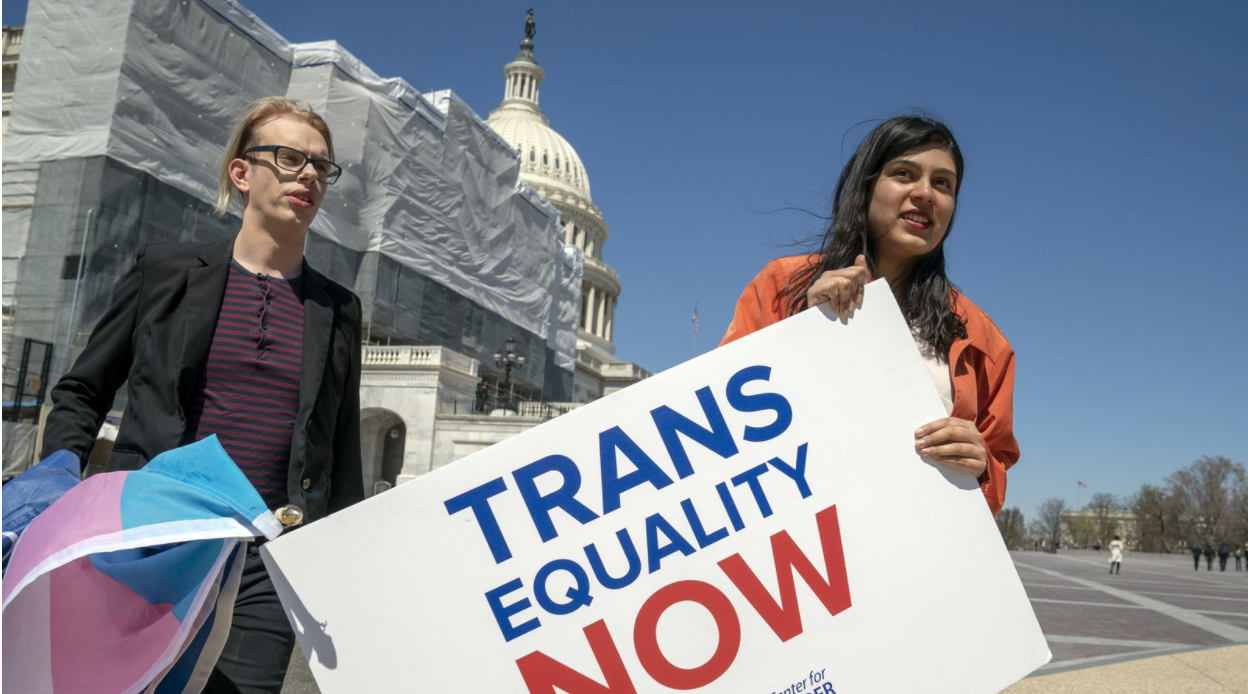By Sabine Ebanks, Y11
US House of Representatives Passes Equality Act, Prompting Wider Debate Around Gender Identity
Lawmakers in the United States are currently in the process of debating a proposed amendment to the 1964 Civil Rights Act, known as the Equality Act. The amendment would ban any discrimination based on sexual orientation and gender identity, overriding a 1993 law called the Religious Freedom Restoration Act which prohibited government interference in religious practices. The bill has gained widespread support among many liberal political circles, which say that it ensures basic rights and dignity for LGBTQ people, who in many states face being denied access to housing and other services based on their identity. However, the bill is still controversial, as many conservative opponents say that it takes away religious freedom for businesses.
For legislation to become law in the US, it must first pass in the House of Representatives, then in the Senate, and then be signed by the President. In either of the first two steps, it must also pass in a smaller committee before being voted on by the full Congress. The Equality Act was first introduced in 2015, and then again in 2017 and 2019; all three times it failed to get past the committee stage in the Senate. This year, supporters of the bill are hoping it could pass in the Senate, which is now controlled by Democrats, who largely support the bill. A promising first step was achieved on February 18th, 2021, when the Equality Act passed in the House of Representatives in a vote largely along partisan lines. Now, the bill is awaiting debate in a Senate committee, and Senate Majority Leader Chuck Schumer has promised to take the bill to a vote by the whole Senate. President Joe Biden has also promised to sign the Act if and when it passes in both houses of Congress.
US House Speaker Nancy Pelosi spoke in support of the Equality Act on February 25th, 2021 on Capitol Hill. Source: Jacquelyn Martin, AP
The legislation has sparked widespread debate around gender identity and religious freedoms. Many conservative opponents of the bill believe that there are only two genders (male and female) and that those who do not identify as cisgender and heterosexual do not deserve protection against discrimination in stores, housing, education, and employment. If the bill passes, all public businesses will be obliged to provide services to all, regardless of their gender or sexual orientation. Most scientists say that there is no biological basis for gender, which according to the American Centers for Disease Control and Prevention is the combination of “cultural roles, behaviors, activities, and attributes expected of people based on their sex”. Therefore, gender identity can be varied and not merely binary male or female; there are many recognized gender identities including nonbinary (those who identify as neither a man nor a woman) and transgender (those who identify as a different gender from the one they were assigned at birth). Gender is not to be confused with sex, which is defined by the World Health Organization as “the different biological and physiological characteristics of females, males and intersex persons, such as chromosomes, hormones, and reproductive organs.” Many who support the bill say that discrimination based on gender identity is an unacceptable violation of LGBTQ people’s human rights.
Switzerland currently has a similar law in place which prohibits discrimination based on sexual orientation, but there is no such protection for discrimination based on gender identity. Those who hope to see the law passed in the United States will have to wait until the debate reaches the wider Senate in the next few months.



